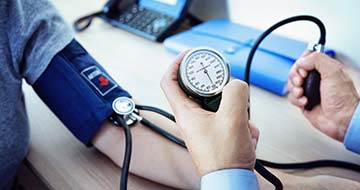Psychiatry
We provide a unique program designed for patients transitioning out of our inpatient mental health unit.
Offering exceptional senior behavioral health services to the Worcester community.
Find an emergency mental health assessment for yourself or a loved one at Saint Vincent.
Learn More
If you’re in need of help for a psychiatric emergency, please call our 24-hour crisis assessment team at (508) 363-5003 or (508) 363-5252.
For doctors: To refer patients to our unit, please call our intake coordinator at (508) 736-4354.
15 Ways to Boost Your Mood
Your mental outlook can affect your physical condition, and your physical condition also may affect your mental health. It’s like the chicken and the egg: which comes first? It’s normal to feel sad or discouraged about certain life events. When sadness persists for longer than a few weeks without relief, you may have depression. Depression is treatable; please seek help if you have chronic feelings of hopelessness.
For less serious mood fluctuations, and for help in navigating the inevitable ups and downs of life, here are 15 things you can do to manage your mood from day to day:
- Stay active. Exercise, even a brisk 10 minute walk, can relieve stress and release endorphins – the feel good hormones. The American Heart Association recommends 30 minutes of moderate exercise five days a week. But even 10- or 15-minute increments count.
- Get a good night’s sleep. Inadequate sleep can increase stress and irritability. If you struggle with sleep, consider 11 tips for a good night’s rest.
- Talk to yourself positively. How do you view yourself? A consistent stream of negative self-talk can be detrimental. Nobody’s perfect, but give yourself the benefit of the doubt and recognize if you need an attitude adjustment.
- Be thankful. Gratitude is a great antidote to feeling negative, and it’s consistently linked to feelings of well-being. If you’re having trouble finding people or things to appreciate, begin a gratitude journal and periodically write down reasons to be thankful.
- Give back. Finding ways to help others often results in making you feel good yourself. There are many volunteer opportunities with organizations, or just look around. Carry someone’s groceries, rake leaves for an elderly neighbor or watch your friend’s children for an hour.
- Stay in the present. The what-if’s and if-only’s of the past and future can be paralyzing. Recognize how much time you spend outside of ‘now,’ and be realistic about what you can do about the situation. Carpe diem! (Seize the day!)
- Eat healthy. When you nourish your body, you nourish your brain. Protein, foods that contain vitamin B-12 (such as dark leafy greens, broccoli and oranges) and complex carbohydrates like oats, pears or beans can help keep mood elevated or stable. Junk food and sugar may satisfy in the moment, then lead to a crash.
- Find a friend. Friendships prevent isolation, which can have a detrimental effect on mental health. Having someone to talk with – and listen – can make all the difference in the world.
- Appreciate nature. A Stanford University study found that walking in nature could lead to a lower risk of depression. Any green area will do – find a park or walk around a neighborhood with trees if you don’t have ready access to wide open spaces. And, natural sunlight can also enhance your mood.
- Get a pet. Nothing says unconditional love like a wagging tail to greet you at the door or a purring cat to hum you to sleep. Studies show that animal companions can reduce anxiety and stress.
- Don’t turn to alcohol or narcotics. The temporary masking of a problem can lead to increased depression, addiction and other negative or life-threatening outcomes.
- Seek counseling or professional help from a therapist, clergy member, case worker or licensed mental health specialist. They can help with strategies and goal-setting to help you get your life back on track.
- Find a support group – if you’ve experienced a major life event, such as job loss, divorce or loss of loved one, it can be helpful to talk through your feelings with others who have been there. You are not alone.
- Take a class, try a new hobby, join a group that has a similar interest, or explore a new place. If you’re feeling bored and uninspired, trying something new can help you discover a new passion or talent that you weren’t aware of.
- Disconnect. Finally, practice some time away from screens and social media. In an always-on world, time on screens becomes the norm. However, the effect of being always connected may actually lead to social isolation. The first step is to be aware of how much time you spend on screens and what it does – or doesn’t do – for you.




